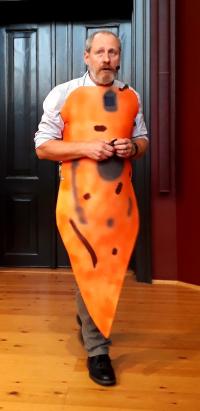FERROGLIO Ezio

Strutture di riferimento
Curriculum Vitae
Attività scientifica
Full Professor ofParasitology and Parasitic Diseases at the Department of Veterinary Sciences,div. Parasitology and Parasitic Diseases, University of Turin. He is Directorof the School of Agrarian Sciences and Veterinary medicine of the University ofTurin, Director of ESCCAP Italy and of the Specialization School on AnimalHealth of The University of Turin. Since1999 he is/has been titular of more than 70 research projects for a total ofmore than 1.800.000 € of research grantsfrom public and private institutions for studies related to the diagnosis,epidemiology and pathogenesis of parasite of public health interest or with an impact on animal production/welfare on pets,livestock, honey bees as well as on wildlife species and on human for zoonoticparasite. Among projects: PRIN 2003 Leishmania infantum:studio della rispostacellulo-mediata nel cane (as unit responsible); PRIN 2005 Genetica,patogenicita' ed immunita' di Neospora caninum (as unit responsible); 2012EMIDA Era-NET Project Acronym APHAEA Harmonised Approaches in monitoringwildlife population Health, and Ecology and Abundance (as Leader of WP1andWP2); 2009 FP7: Project acronym: WIldTech n.222633 www.wildtech.com (as Associate partner); 2017 ENETWILD (EFSAsponsored, Leader of WP 6); 2019 ENETWILD CS (EFSA sponsored). He is/has been tutor of more than 90 theses for theDegree in Veterinary Medicine and 6 PhD Thesis. He has been called to doseminars, on parasitic diseases and wildlife diseases of public healthinterest, at more than 230 courses for colleagues/practitioners. He has been author/co author of more than 130 publicationscited in Scopus with more than 2800 citations and an H index of 29 and has aResearch Gate H index of 34 and a score of 38,57 (higher than 95% ofResearchGate members’).

